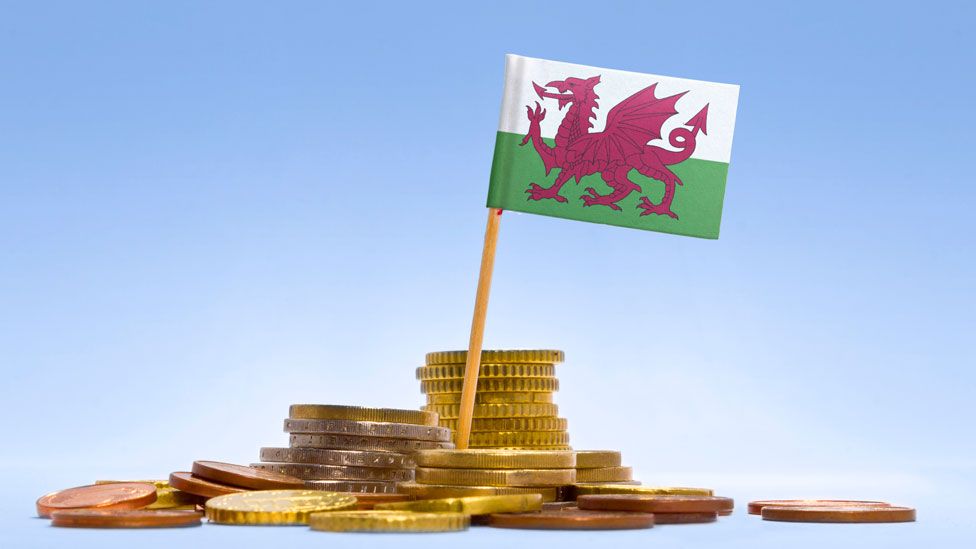
By Shelley Phelps & Carys Betteley
BBC News
If you run a business or holiday let, have children in school or simply use a car for your daily commute, then this Budget is likely to affect you.
Chancellor Jeremy Hunt will present his tax and spending plans in the House of Commons on Wednesday.
So how exactly does this Budget – likely to be the last one before the UK general election – affect people in Wales?
Here are five things to look out for.
Tax cuts
Top of Tory MPs’ wish list from Mr Hunt are tax cuts that they can sell to voters on the doorsteps.
Conservative former Welsh Secretary and Vale of Glamorgan MP Alun Cairns has asked Mr Hunt for a reduction in national insurance or income tax.
“The public are impatient and want to see progress in cutting taxes,” said Mr Cairns.
“Jeremy Hunt needs to help out hard-working people on the island [of Anglesey] by ensuring more of the money they earn goes to them, not the state,” urged Ynys Môn MP Virginia Crosbie.
But it is worth remembering that although income tax cuts are more headline grabbing, in Wales people pay more in VAT than income tax.
And the experts at the Institute for Fiscal Studies have pointed out that even if there is an income tax or national insurance cut, we are still paying more in taxes overall than we were at the time of the last General Election.
Public spending
The Welsh government has called for increased funding for public services.
Finance Minister Rebecca Evans said: “The decision not to increase funding for public services in the autumn statement has meant that hospitals, schools and other vital public services have been exposed to huge pressures, impacting severely on the future sustainability of those services. This must be reversed.”
Image source, Getty Images
The Welsh government is calling for increased funding for public services such as schools and hospitals
Plaid Cymru also wants more investment in public services.
Plaid has suggested increasing the amount of tax levied on capital gains – the tax you pay on selling property or investments – to pay for it.
One thing to keep an eye on is the politics. Even though the Labour-run Welsh government wants more money for public services, the last time the UK government cut national insurance in the autumn, Labour did not oppose the move: there’s an eye on a general election coming up.
Holiday lets
Image source, Getty Images
Could tax relief on properties being rented out to holidaymakers be scrapped?
The Sunday Times has reported that Mr Hunt is considering scrapping the furnished holiday lets scheme which gives extra tax reliefs on properties being rented out to holidaymakers.
There are more than 11,000 self-catering holiday lets in Wales, according to the Welsh government’s latest list of properties paying non-domestic rates.
The topic is a big talking point in holiday home hotspots like Gwynedd and Ynys Môn.
The Welsh government has already introduced changes to make it harder for holiday lets to be exempt from council tax.
Small and medium-sized businesses
More than 99% of firms in Wales are small and medium sized businesses (SMEs) and they account for about two-thirds of employment (62.9%), according to Welsh government statistics.
The Federation of Small Businesses in Wales has said many are still struggling through a “cost of doing business crisis”, and it’s worth remembering that in 2023 more than 25,000 businesses went bust in Wales and England, which was a 30-year high.
The FSB wants the point at which businesses start paying VAT to be increased.
The current system “acts as a straitjacket to firms eager to expand, because they end up tiptoeing around it to avoid extra costs,” said FSB Wales’ Ben Cottam.
Fuel
Fuel duty has been frozen since 2011 and this is expected to continue.
Some MPs have reported being lobbied about this by constituents in the run-up to the Budget.
Another issue of concern has been high pump prices in rural areas.
Will you be affected by the issues raised in this story? Share your experiences by emailing haveyoursay@bbc.co.uk.
Please include a contact number if you are willing to speak to a BBC journalist. You can also get in touch in the following ways:
If you are reading this page and can’t see the form you will need to visit the mobile version of the BBC website to submit your question or comment or you can email us at HaveYourSay@bbc.co.uk. Please include your name, age and location with any submission.








